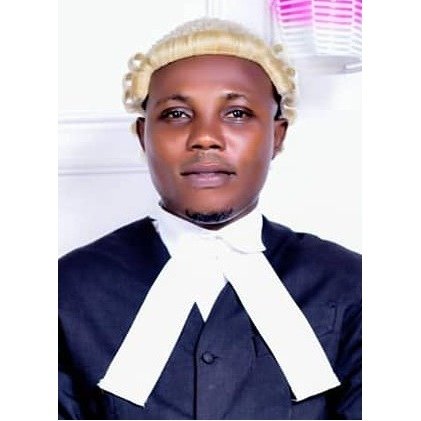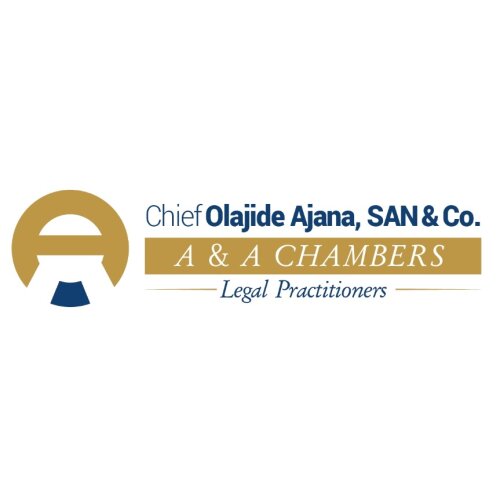Best Structured Finance Lawyers in Akure
Share your needs with us, get contacted by law firms.
Free. Takes 2 min.
List of the best lawyers in Akure, Nigeria
About Structured Finance Law in Akure, Nigeria
Structured finance refers to complex financial instruments and transactions designed to help borrowers, investors, and companies manage risk, raise capital, or repackage existing financial assets. In Akure, Nigeria, structured finance typically involves activities such as securitization, asset-backed securities, project finance, syndicated loans, and other custom financial products. These transactions are used by corporate organizations, financial institutions, and sometimes governmental agencies to access large-scale funding, manage risk exposure, or restructure existing obligations. Given the intricate legal and regulatory frameworks involved, structured finance in Akure requires thorough understanding of both local law and international best practices.
Why You May Need a Lawyer
Several scenarios can arise in Akure where legal advice in structured finance becomes necessary. If you are a business seeking to raise capital through asset securitization or project financing, a lawyer can guide you in drafting the needed agreements, conducting due diligence, and ensuring compliance with regulations. Investors may need legal counsel to assess risks or negotiate terms when purchasing structured products. Banks and lenders engaging in syndicated lending or loan restructuring will also need legal input to safeguard their interests.
Disputes over financial agreements, regulatory investigations, risk management, and restructuring distressed assets are other situations where professional legal assistance is crucial. Given the possible involvement of multiple parties and cross-jurisdictional laws, seeking advice from a lawyer familiar with structured finance in Akure can help protect your rights and ensure that transactions are legally sound.
Local Laws Overview
Structured finance in Akure is subject to Nigerian federal laws as well as local regulations. Key legislations include the Companies and Allied Matters Act, the Investments and Securities Act, and the Central Bank of Nigeria’s (CBN) guidelines. The Securities and Exchange Commission (SEC) oversees securities transactions and ensures compliance with disclosure rules and investor protection standards.
Other relevant frameworks include regulations on foreign exchange, local taxation policies, anti-money laundering laws, as well as directives from bodies like the Nigerian Stock Exchange. Parties involved in structured finance transactions in Akure need to be aware of requirements for documentation, registration of interests, permissible financial products, and ongoing reporting obligations. The legal environment is evolving, and staying updated on local practices is important for all participants.
Frequently Asked Questions
What is the meaning of structured finance in the context of Akure, Nigeria?
Structured finance refers to legal and financial mechanisms used to arrange more complex funding solutions than traditional loans, including securitization of assets, project finance, and risk pooling, tailored to the specific needs of the Akure business climate.
What types of businesses in Akure commonly use structured finance?
Banks, large corporations, real estate developers, infrastructure companies, and occasionally government entities use structured finance techniques to raise capital or manage risk.
Are structured finance transactions legal in Akure, Nigeria?
Yes, structured finance transactions are legal, provided they comply with Nigerian laws, regulations of the Central Bank of Nigeria, and relevant oversight by the Securities and Exchange Commission.
What role does a lawyer play in structured finance transactions?
A lawyer provides valuable support in drafting, reviewing, and negotiating agreements, ensuring regulatory compliance, performing due diligence, and representing clients in disputes or investigations.
How are disputes in structured finance deals resolved?
Disputes can be resolved through negotiation, arbitration, or litigation, depending on the terms of the contract and the nature of the disagreement.
What risks are associated with structured finance products in Akure?
Risks can include regulatory changes, counterparty default, legal disputes, market volatility, and unforeseen tax liabilities. Lawyers help identify and mitigate these risks during the structuring phase.
Are there specific approvals required for structured finance deals?
Many transactions require approval or notification to regulatory bodies such as the SEC or CBN. Some activities, like issuing asset-backed securities, may need registration or licensing.
Can foreign investors participate in structured finance projects in Akure?
Yes, foreign investors can participate, but must comply with Nigerian investment laws, foreign exchange controls, and due diligence processes to ensure legal status and regulatory acceptance.
Are there tax implications for structured finance transactions?
Yes, structured finance transactions can have significant tax implications. Proper structuring and legal advice help manage withholding taxes, value added tax, stamp duties, and other levies.
How do I choose the right lawyer for structured finance in Akure?
Look for lawyers or firms with proven experience in financial law, an understanding of local and global structured finance practices, and familiarity with regulatory bodies governing such transactions in Nigeria.
Additional Resources
- The Securities and Exchange Commission (SEC) Nigeria: The primary regulator for securities transactions providing guidelines and investor protection.
- Central Bank of Nigeria (CBN): Issues policies relevant to financial institutions, currency, and other structured finance activities.
- Corporate Affairs Commission (CAC): Registers companies and ensures legal compliance for corporate structures involved in structured finance.
- Nigerian Bar Association - Akure Branch: Can refer clients to lawyers with expertise in financial matters.
- Federal Inland Revenue Service (FIRS): Handles tax-related matters, which are important in structured finance deals.
- Local law libraries and university law faculties: Useful for research and finding references in case law and literature.
Next Steps
If you think you need legal advice regarding structured finance in Akure, consider the following steps:
1. Gather all relevant documents, such as contracts, letters of intent, loan or financing documents, and correspondence with partners or regulators.
2. Identify your main goal, whether it is raising capital, mitigating risk, structuring a deal, or resolving a dispute.
3. Schedule a consultation with a legal practitioner who specializes in structured finance and financial law in Akure.
4. Clearly explain your situation, provide all necessary documents, and ask questions about possible risks, benefits, and compliance needs.
5. Follow the legal advice provided and ensure you comply with regulatory notifications, approvals, and filing requirements.
Taking these proactive steps will help protect your interests and smooth the process of engaging in structured finance transactions in Akure, Nigeria.
Lawzana helps you find the best lawyers and law firms in Akure through a curated and pre-screened list of qualified legal professionals. Our platform offers rankings and detailed profiles of attorneys and law firms, allowing you to compare based on practice areas, including Structured Finance, experience, and client feedback.
Each profile includes a description of the firm's areas of practice, client reviews, team members and partners, year of establishment, spoken languages, office locations, contact information, social media presence, and any published articles or resources. Most firms on our platform speak English and are experienced in both local and international legal matters.
Get a quote from top-rated law firms in Akure, Nigeria — quickly, securely, and without unnecessary hassle.
Disclaimer:
The information provided on this page is for general informational purposes only and does not constitute legal advice. While we strive to ensure the accuracy and relevance of the content, legal information may change over time, and interpretations of the law can vary. You should always consult with a qualified legal professional for advice specific to your situation.
We disclaim all liability for actions taken or not taken based on the content of this page. If you believe any information is incorrect or outdated, please contact us, and we will review and update it where appropriate.










